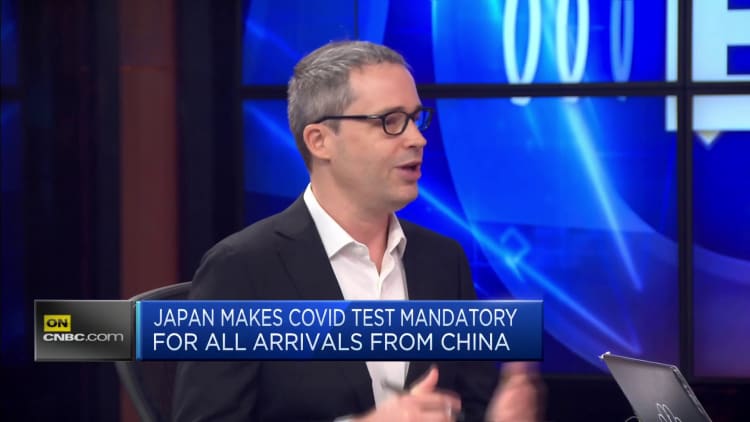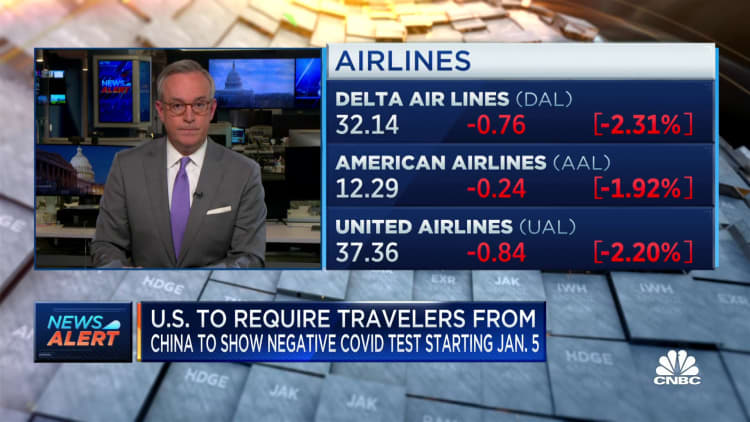All airline passengers over the age of two departing from China, Hong Kong, or Macau must be tested for Covid-19 at least two days before their flight to the United States and show a negative result to the airline upon departure. I have. Disease Control and Prevention was announced Wednesday.
This requirement, which applies regardless of nationality or vaccination status, will begin on 5 January. Travelers can undergo a PCR test or rapid self-test administered and monitored by telemedicine services. Rapid tests must be approved by the Food and Drug Administration or relevant national authorities.
Travelers check in at Shanghai’s Hongqiao International Airport on December 12, 2022 after China eases domestic travel restrictions.
Shen Qilai | Bloomberg | Bloomberg | Getty Images
Airline passengers flying through Incheon International Airport in South Korea, Toronto Pearson and Vancouver International Airport in Canada must also test negative for Covid before heading to the United States if they were in China 10 days ago.
According to the CDC, these three airports cover the overwhelming majority of travelers originating in China with connecting flights to the United States.
The testing requirement comes as Beijing battles the virus outbreak after easing its strict zero-Covid policy following social unrest earlier this year.

The United States has limited information about the situation on the ground in China, a federal health official told reporters by phone Wednesday. With testing declining across China and genomic surveillance data limited, it’s unclear what mutations are prevalent on the mainland, officials said.
“The recent rapid rise in infections in China makes it more likely that new variants will emerge,” said health officials. Officials say the United States is taking aggressive steps to protect public health and to stay vigilant of new Covid variants as the situation in China unfolds.
The CDC is expanding its program to monitor international travelers for new Covid variants to include airports in Los Angeles and Seattle. The monitoring program currently includes seven airports and covers approximately 500 flights per week, including 290 flights from China and surrounding regions.
The surveillance program will voluntarily collect nasal swabs from international travelers, and the CDC will analyze Covid-positive samples to determine if they are a new virus variant.

